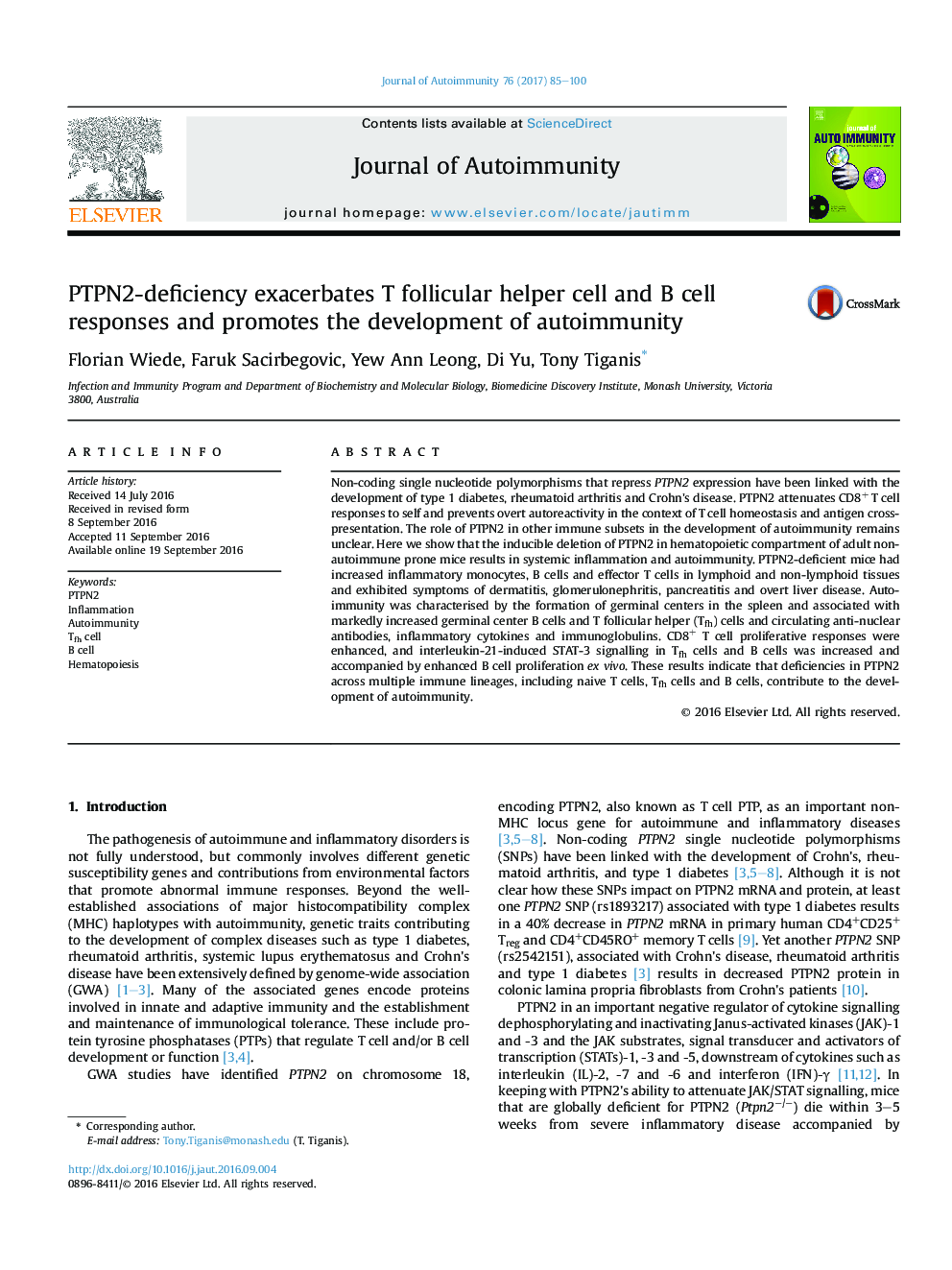| Article ID | Journal | Published Year | Pages | File Type |
|---|---|---|---|---|
| 5667935 | Journal of Autoimmunity | 2017 | 16 Pages |
â¢Hematopoietic PTPN2-deficiency promotes systemic inflammation and autoimmunity.â¢PTPN2-deficiency enhances T cell and B cell responses.â¢PTPN2 deficiency increases Tfh cell generation.â¢PTPN2 deficiency promotes IL-21-induced STAT3 signalling in B cells and Tfh cells.
Non-coding single nucleotide polymorphisms that repress PTPN2 expression have been linked with the development of type 1 diabetes, rheumatoid arthritis and Crohn's disease. PTPN2 attenuates CD8+ T cell responses to self and prevents overt autoreactivity in the context of T cell homeostasis and antigen cross-presentation. The role of PTPN2 in other immune subsets in the development of autoimmunity remains unclear. Here we show that the inducible deletion of PTPN2 in hematopoietic compartment of adult non-autoimmune prone mice results in systemic inflammation and autoimmunity. PTPN2-deficient mice had increased inflammatory monocytes, B cells and effector T cells in lymphoid and non-lymphoid tissues and exhibited symptoms of dermatitis, glomerulonephritis, pancreatitis and overt liver disease. Autoimmunity was characterised by the formation of germinal centers in the spleen and associated with markedly increased germinal center B cells and T follicular helper (Tfh) cells and circulating anti-nuclear antibodies, inflammatory cytokines and immunoglobulins. CD8+ T cell proliferative responses were enhanced, and interleukin-21-induced STAT-3 signalling in Tfh cells and B cells was increased and accompanied by enhanced B cell proliferation ex vivo. These results indicate that deficiencies in PTPN2 across multiple immune lineages, including naive T cells, Tfh cells and B cells, contribute to the development of autoimmunity.
